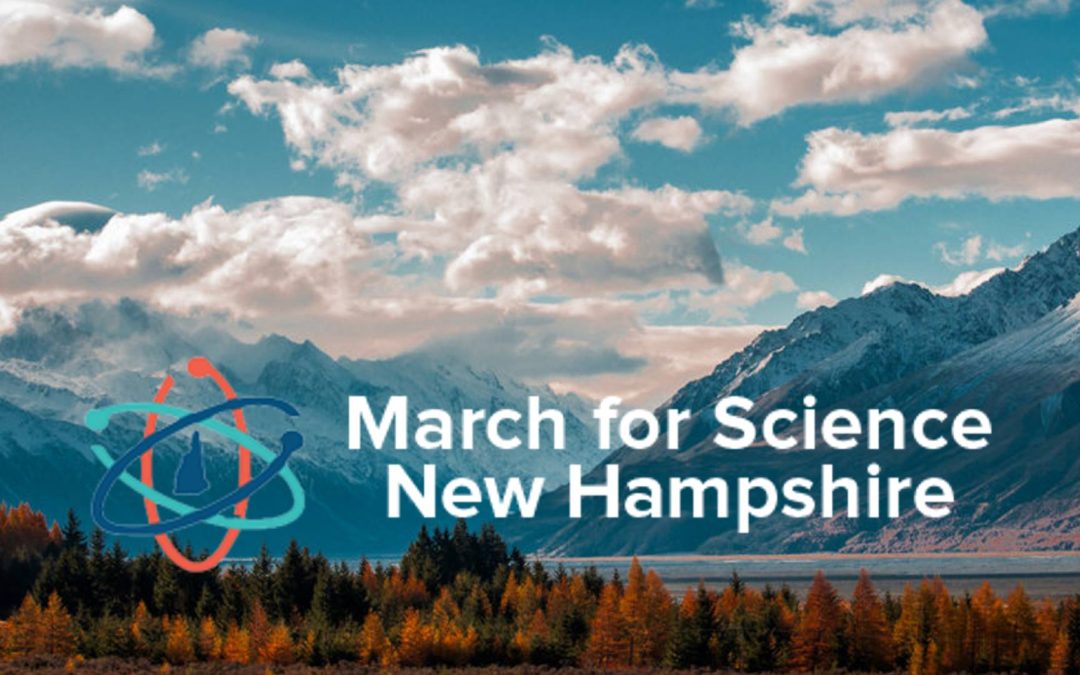I’m of two minds about the March for Science events happening Saturday. (Of the 500 or so events planned around the country I know of two in New Hampshire – in Concord at the Statehouse from 9 a.m. to 2 p.m., and in Portsmouth at Market Square from 1 to 3 p.m. The region’s biggest event happens on the Boston Commons from 2 to 4 p.m. They all have Facebook pages.)
I’ve been writing a weekly newspaper column cheering on science since before most post-docs were born – it started in May 1990 – and I organize and moderate one of the longest-running Science Cafe sessions in New England, which has been going on monthly for more than six years.
Obviously I want society to value scientific endeavors and the scientific method, and I’m alarmed by a worldwide trend of governments, groups and individuals to put less and less value in the scientific process and science in general, dismissing conclusions they don’t like as biased or fake or whatever. Science has a distressing habit of making us face bits of reality we’d rather ignore, and the easiest response is to shoot the messenger.
Society’s path must be driven by our culture, our beliefs, our feelings and faiths, but it is science that creates the framework on which these all must lie. Otherwise it’s the Dark Ages, with more powerful weapons.
So hooray for an event that emphasizes the value of science and the need to support it, right? Yes, but …
I’m also the guy who penned the slogan for Science Cafe NH: “No politics, no PowerPoint”. The latter bit is a semi-joke to show that we’re a conversation rather than a lecture, but it’s the first bit that matters. I’ve shunned politics and activism in my sci/tech reporting because it’s boring as well as divisive. It usually reduces to a bunch of “he said/she said” with a toxic overlay of assumptions about other people’s motivations and no good way to reach a conclusion short of bludgeoning each other.
So I avoid politics like the proverbial plague. And the March for Science is definitely a political event, generated mostly by opposition to actions being taken by President Trump’s administration – although a number of anti-science movements that are politically liberal (*cough* GMOs *cough*) have also raised alarm.
Some fear this political overlay means the mere existence of the March for Science will remove any cloak of impartiality that the scientific community possesses, leaving it vulnerable to the whims of electoral results. Others say such a vulnerability already exists, partly because those who value science haven’t stood up and pushed back against opposition.
This has created a lot of debate within the scientific community (which shuns politics as much as I do) about whether to join the March for Science. In fact, I suspect that most of those participating won’t be people whose livelihood requires doing research or experimentation for a government/academic/commercial employer, but will be people who have previously expressed political opinions and work as teachers, engineers, doctors, environmental activists and similar professions.
That is, I’m guessing participants will mostly be people who USE science rather than people who DO science, although that doesn’t make their concern any less valid.
In the end, I suppose my feeling is this: It’s great to see large segments of our society standing for the scientific process, but it’s a shame such a messy, divisive process is required to make us appreciate the most beautiful and successful method of understanding reality that the human species has ever devised.


 Return to the Concord Monitor
Return to the Concord Monitor